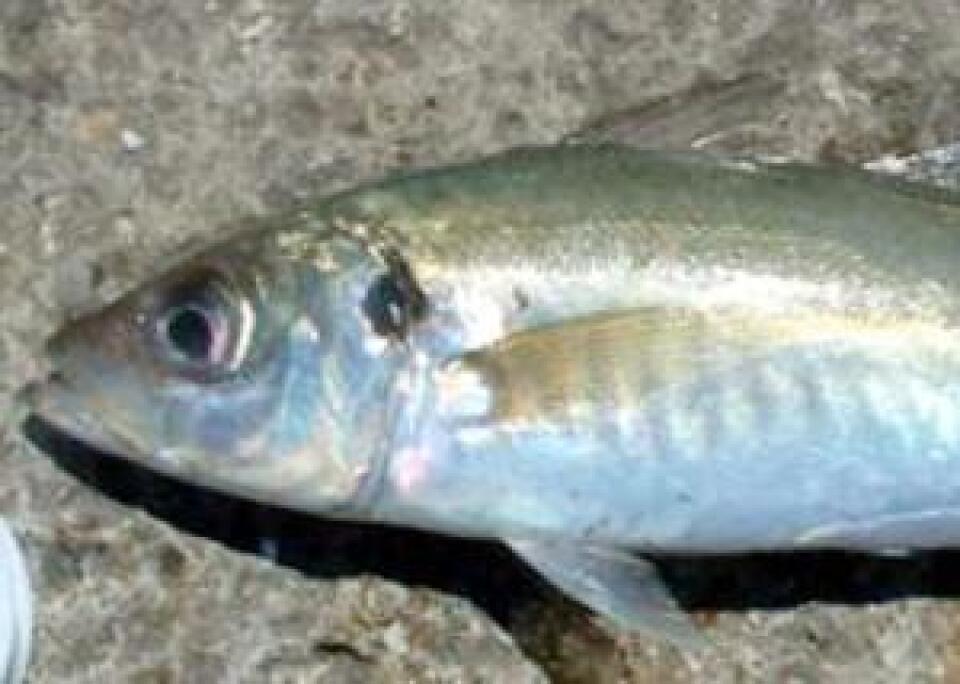Responding on behalf of Oceana, Dario Milo, a partner at Webber Wentzel said his client’s view at the outset was that the allegations were baseless, unfounded, defamatory, and false.
Aishah Cassiem
aishah.cassiem@inl.co.za
FISHING company Oceana has been accused by businessman John Reed of sabotaging new role players in South Africa’s fishing industry, through their subsidiary, for control in the horse mackerel sector which has allegedly resulted in more than R1 million worth of losses for one company alone.
About 18 businesses had in 2020 gathered to discuss challenges in the sector due to actions allegedly conducted by Oceana and had taken to court with Oceana’s subsidiary and the Department of Forestry, Fisheries, and Environment (DFFE) over the unfair distribution of horse mackerel rights.
While Oceana’s fishing and production activities are conducted through four operating divisions, including the Blue Continent Products (BCP), DFFE’s communications director Zolile Nqayi confirmed that: “Oceana is not a current rights holder in the Horse Mackerel Fishery (HMK), it does, however, benefit indirectly from the sector, through its subsidiary, BCP.”
Reed, the chief executive of Korana Fishing – who represents the group of businesses on the horse mackerel matter – said while most companies had backed out of the court matter due to it being costly, his company Korana Fishing remained to fight the matter in court, which is set to continue later this year.
Reed who received horse mackerel rights in 2019 said he wants to fight for the rights of new role players, and for the value and distribution of horse mackerel to the local market, but upon speaking up he has been labelled as a “disrupter” by Oceana.
Dominated by one midwater trawl vessel
Reed said while 13 out of 14 companies in the sector were dominated by one midwater trawl vessel Desert Diamond owned by Oceana who invested more than R72 million in 2003, specifically for the horse mackerel industry, Oceana’s website also confirms that they conduct their horse mackerel fishing business through two strategically located subsidiaries, one of which include BCP who harvests its fishing rights with the Desert Diamond.
“The vessel’s shareholding has a 10% Sea Harvest and 90% Oceana shareholder, the only two role players in the horse mackerel industry, with only one association controlling the sector, run by members of the two companies.
“This means, if we wanted to bring another vessel in, we would not be able to as we need to go through the association, and one can think if Sea Harvest and Oceana control this organisation, then they are not going to allow this.”
He said the businesses had called for the formation of their own horse mackerel association, but they were advised not to do so by the current association, and to join them instead.
Reed received his horse mackerel rights in 2019 and had immediately activated it, signing up with the Oceana, in which he was later allegedly sabotaged, losing more than an R1m.
“I lost a lot of money in doing tasks which Oceana was supposed to do to activate my services. This was done during a sufficient time and in the end, they came back to me and another company and advised us that they couldn’t catch anything for us. Being a new company and an indigenous person coming into the industry, I was severely sabotaged and attorneys have cost hundreds and thousands of rands on this matter.”
He said everything transpired during a time of appeals by the previous minister of DFFE, where big companies allegedly lodged a court case against new players into the industry, that they shouldn’t have rights, as they were not happy to share the resources.
Reed said while Oceana was solely designing themselves to be the only distributor and marketer of this sector in South Africa, which he finds to be very anti-competitive, Oceana also previously had a policy on the Desert Diamond to catch their fish first and whoever still needed to catch their fish would do so thereafter. “This was wrong and then they decided to deploy a new system afterwards of catching one month for themselves first and the next month for other right holders. Due to that type of operation, it cost my company more than R1m.”
He said other right holders had all been set up in paper quarters holdings by Oceana and prior to this, it was a “take it or leave it” situation as they didn’t have options and were not even entitled to have a piece of their allocation to distribute it to the local market.
“Oceana put up this whole front because of capital intentions and while we are getting 50 cents to R1 a kilogram for horse mackerel in SA, in Namibia right holders who I spoke to said they get about R8 per kg. That’s a massive difference concerning the same market and this is all the value that Oceana is capitalising in their balance sheets.”
Baseless allegations
Responding on behalf of Oceana, Dario Milo, a partner at Webber Wentzel said his client’s view at the outset was that the allegations were baseless, unfounded, defamatory, and false.
“Oceana is scrupulously ethical in its participation in applications for any fishing rights, which as you know is done in accordance with applicable laws, policies, and processes published through National Government and DFFE.
“On November 8, 2019, BCP, Sea Harvest, and Irvin & Johnson Limited launched a review application in the Western Cape High Court. The court’s findings on the allocation of horse mackerel fishing rights are a matter of public record.
“The party mentioned in your enquiry was a respondent in this court process. Given that our client had an agreement with the party you mention, subject to confidentiality, neither party is at liberty to disclose any terms relating to this agreement.
“Our client, as a responsible corporate citizen, will always aim to enhance and develop newcomers in the industry. Newcomers are welcome across the fishing industry and our client has always worked with them to responsibly harvest, process, market, and distribute fish in compliance with applicable laws. All our client’s rights are in any event reserved.”
Anti-competition practices
Responding to the anti-competition practices, Nqayi said the Department had no knowledge of Reed’s allegations, and while they were aware that commercial contracts were negotiated between the parties without knowledge or involvement from the DFFE, should Oceana or any of its subsidiaries be involved in anti-competitive behaviour this should be reported to the relevant authorities.
“The Competition Commission under the Department of Trade, Industry, and Competition is the competent authority with a mandate to investigate, control and evaluate restrictive business practices, abuse of dominant positions and anti-competition matters and accordingly any restrictive practice ought to be referred to such a body.”
Nqayi confirmed that the Western Cape High Court had granted an order in December 2020 in the matter of BCP and others v Minister of Environment, Forestry and Fisheries and others, for the setting aside and reconsideration of the decision of the former minister, and in so far as latter allowed 30 new entrants into the sector.
“This order was then varied in May 2021, such that all the appeal decisions in the HMK sector including Category A, B, and C are set aside and are to be reconsidered by the Minister. A further application was brought by Mayibuye Fishing, seeking the right for it and other category B and C appellants in the sector to continue to fish, pending the Minister’s reconsideration of such appeals.
“By agreement between the parties, this arrangement was agreed to, as well as for three appellants who had been admitted by the Minister on appeal, to apply for an exemption to fish pending such appeal process,” said Nqayi.
Nqayi said while DFFE is committed to the values of the Marine Living Resources Act, Act 18 of 1998, in the allocation of fishing rights in a manner that is fair and equitable, and to the benefit of all the citizens of South Africa, the Department also takes note of its policies which are aimed at restructuring the fishing industry, to address historical imbalances and achieve equity within all branches of the fishing industry.
Oceana’s 2019 sustainability report stated that the vessel lands on average about 70% of the horse mackerel Precautionary Upper Catch Limit (PUCL), fishing in partnership with other rights holders, catching 50 000 a year whilst the small pelagic fishery catches 10 000. Their report for 2020 showed a 5% increase in horse mackerel PUCL.
Sea Harvest did not respond by the time of publishing. | Investigations Unit – investigations@inl.co.za


















